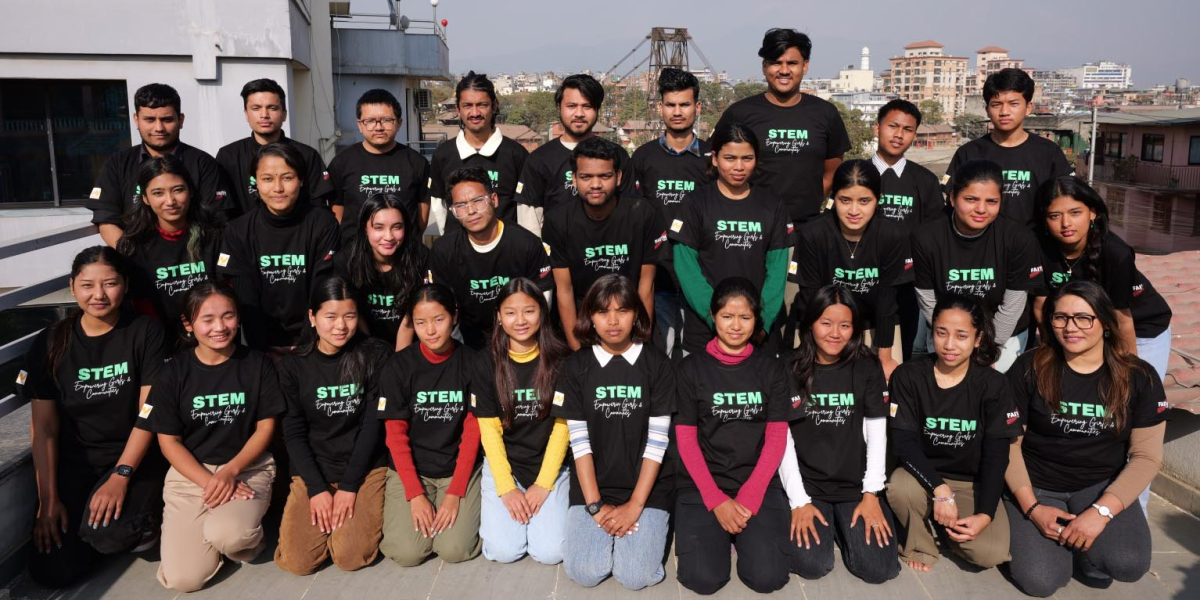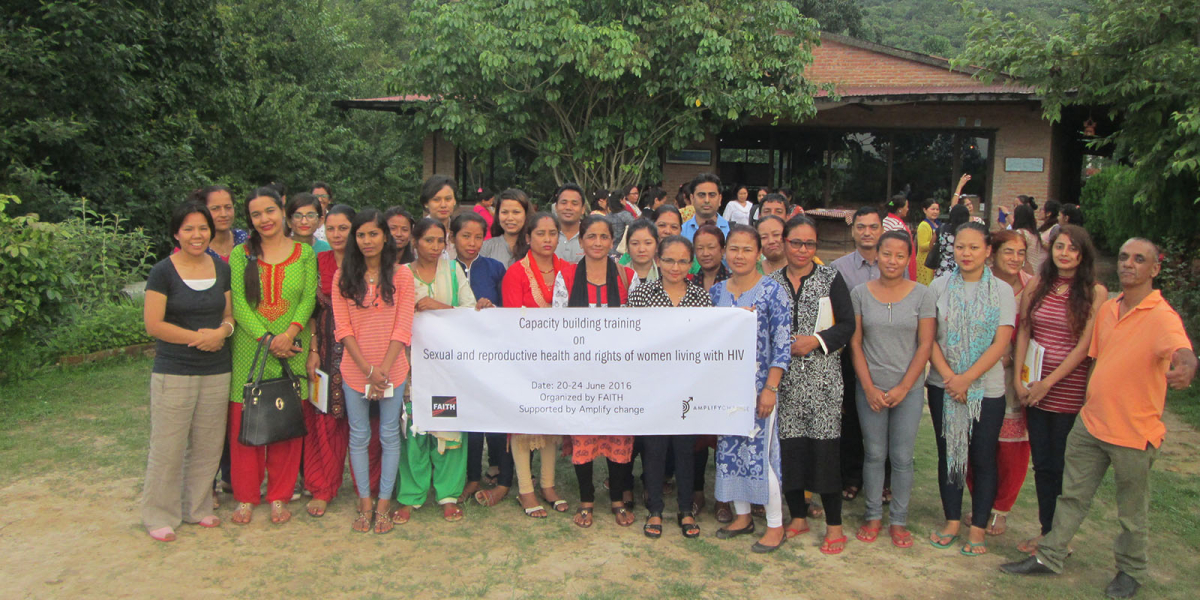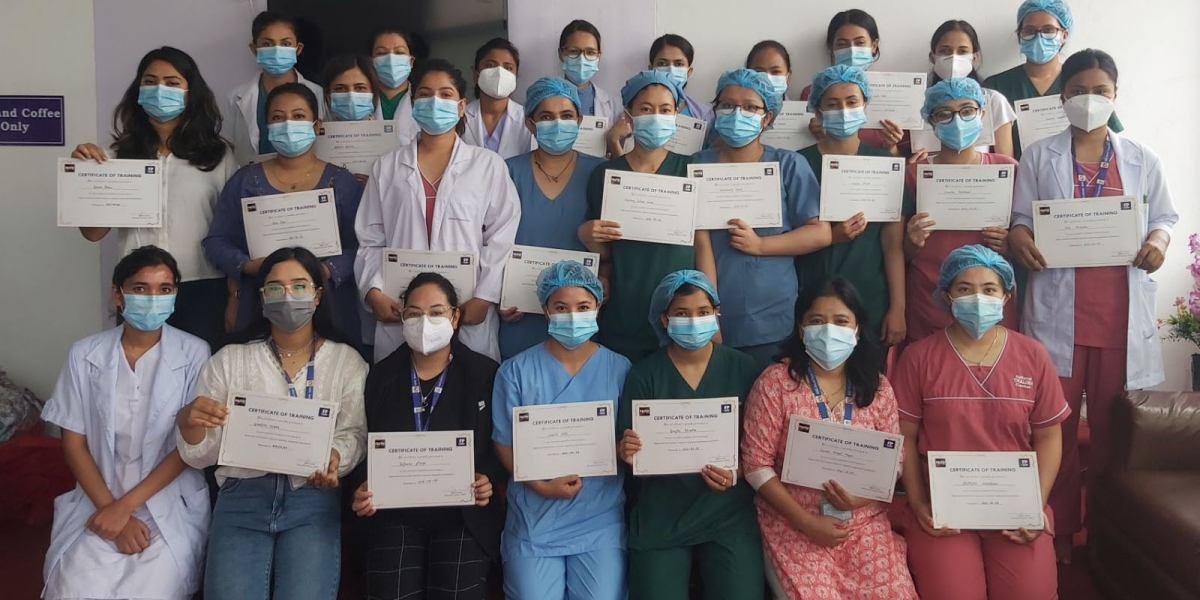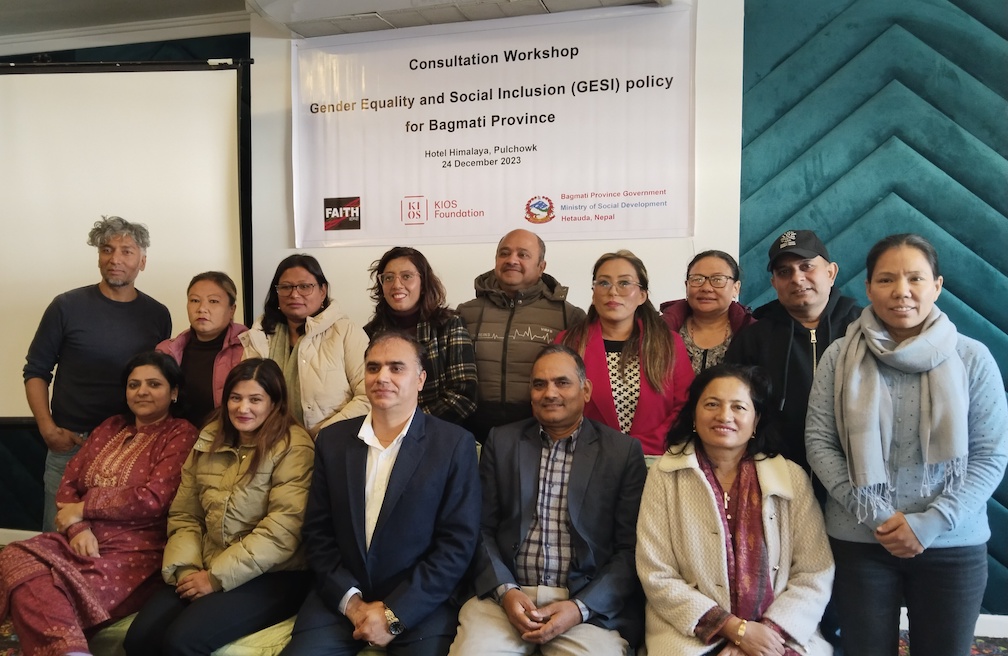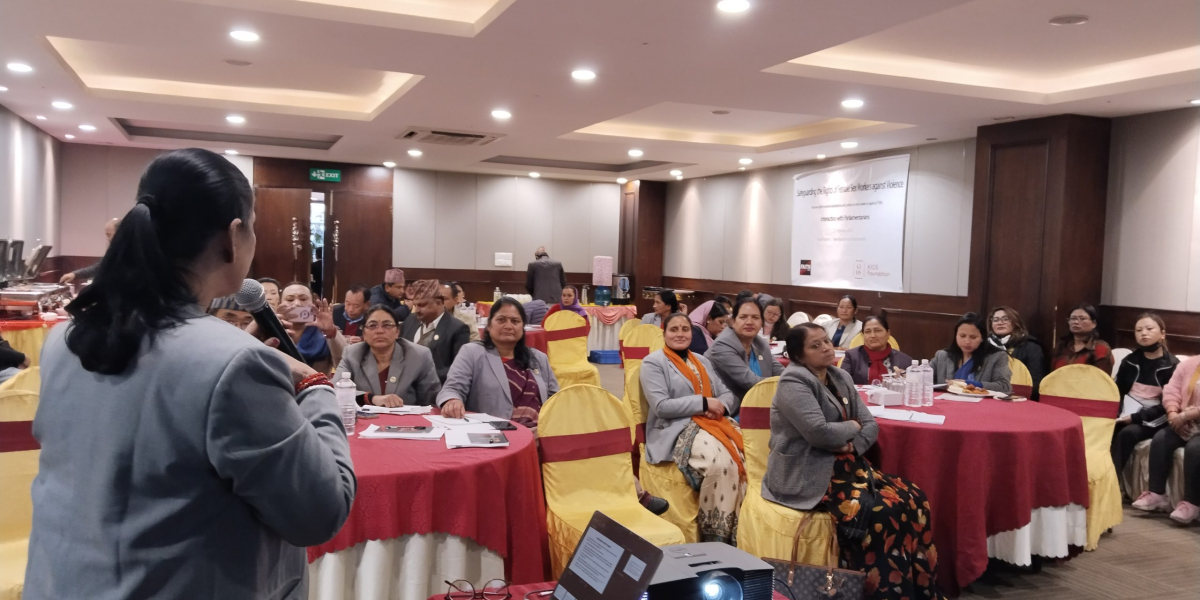About FAITH
Women trained in
Financial Literacy, 2024
Women received
COVID-19 relief package, 2021
Girls & Women directly oriented, trained on their
Sexual and Reproductive Health and Rights, 2016-2021
Capacity building of
Women led Community organisations, 2016-2021
Trained and Oriented Local Government Health care providers, 2016-2021
Mental Health Literacy Orientation
of Marginalized girls and women, 2023-2024
Marginalized girls and women received legal literacy orientation
Are being trained on STEM Education, 2024
Social Media Reach
FAITH emerged in response to a national movement advocating for health rights for people living with HIV (PLHIV) and people who use drugs (PWUD). In the early 2000s, many faced severe illnesses and succumbed to AIDS due to inadequate medical care, pervasive stigma, and government indifference. Communities began forming support networks, aided by international partners' technical and financial support, leading to the establishment of nationwide organizations often led by those directly affected.
In 2005, FAITH was founded with a mission to create a supportive community for those infected and affected by HIV. From the outset, the organization prioritized advocacy for favorable policies, empowerment, and the transformation of social norms over direct service delivery. The combined efforts of FAITH and similar organizations significantly expanded HIV services, providing hope for productive and fulfilling lives for those living with HIV.
Recognizing the heightened vulnerability of people living with HIV to Tuberculosis (TB), FAITH pioneered programs for TB screening and treatment, now a life-saving standard protocol. This achievement underscored the need to address broader challenges. Adolescents and women living with HIV, female sex workers, and women who use drugs continue to face barriers to accessing health and human rights, prompting FAITH to broaden its scope.
In 2015, FAITH declared itself a women-led organization, marking a pivotal moment in its evolution. The organization expanded its initiatives to include advocacy for Sexual and Reproductive Health and Rights (SRHR), prevention of gender-based violence, economic empowerment, gender equality, and social equity. Today, FAITH empowers and supports female and trans sex workers, women who use drugs, women living with HIV, girls and women from indigenous and Dalit communities, individuals with disabilities, and those marginalized by geographic isolation, political exclusion, or economic hardships.
Collaborating with beneficiary-led Community-Based Organizations (CBOs), FAITH continues to address crucial issues and foster positive change. Our journey has been a profound learning experience, offering insights into our community and strategies to make governance more responsive and accountable. We are committed to leveraging these lessons to drive innovation and create a society that embraces dignity and equality for vulnerable and marginalized populations.
FAITH transcends the role of an organization by fostering a community built by and for those we serve. We are deeply committed to empowering individuals, encouraging active participation in decision-making, and enabling them to take control of their lives. This commitment is embodied in our name, Friends Affected & Infected Together in Hand (FAITH). We integrate this ethos across all levels of our organization, from the executive board to general membership and, where feasible, our staff—many of whom come from the communities we serve. All decision-making positions are held by women, underscoring our unwavering dedication to meaningful inclusion and empowerment.
Promoting Equality, Equity, and DignityAt FAITH, we prioritize equality and equity as foundational principles, rejecting all forms of discrimination and affirming the inherent dignity of every individual. Our mission to dismantle stigma and bias drives our work at both grassroots and national levels. Through persistent advocacy, media engagement, and public outreach, we challenge stereotypes, confront biases, and spark critical dialogue on issues such as stigma, discrimination, violence, and the denial of basic human and health rights.
Leveraging Media and TechnologyAs a pioneer organization in Nepal, FAITH utilizes media and technology to transform societal norms surrounding marginalized populations. By producing documentaries, short films, public service announcements, and music videos, we humanize marginalized communities, educate policymakers and the public, and amplify the voices of those we serve. Our in-house media mobilization team ensures the creation and dissemination of impactful content that promotes positive role models and inspires change.
Building Strategic NetworksFAITH envisions its role as a collaborative bridge, working across diverse sectors to ensure marginalized populations lead healthy and fulfilling lives. Recognizing the interconnectedness of human rights movements, we align with the broader women's rights movement and foster strategic partnerships. Our collaborative approach strengthens networks and amplifies collective efforts to advocate for the rights and well-being of vulnerable and marginalized communities.
Expanding Focus AreasFAITH is broadening its scope to address the evolving needs of marginalized populations. Our initiatives empower and support female and trans sex workers, women who use drugs, women living with HIV, girls and women from indigenous and Dalit communities, individuals with disabilities, and those marginalized by geographic isolation, political exclusion, or economic hardships. We are committed to fostering equity, dignity, and empowerment for all within these communities.
At FAITH, along with our stakeholders, we have developed four strategic priorities that are important to achieving our vision. These represent areas where we must focus our efforts and assign resources. They build on our core strengths – innovation, advocacy and social mobilization – while expanding the work to mission-critical areas. It also commits us to being creative, agile, always learning and prepared to take risks to accelerate transformations in the society around us and beyond.
Successfully implementing our priorities will require us to invest in ourselves and lean on our distinct assets – our staff, board, and the larger, supportive community – as we seek to:
1. Design breakthrough and innovative campaigns for advocacy
We are recognized by our peers for innovative use of media platforms to draw national attention to important issues. As an organization, we will continue to invest in innovation – through art, theatre, documentaries – that confront harmful stigma and discrimination while promoting positive role models for the impacted communities. We also recognize that we need to pursue lasting partnerships with organizations that see the promise of new forms of media to shatter stigma associated with sexuality, gender, or people living with HIV, TB and other marginalized populations.
2. Advance Sexual and Reproductive Health and Rights
Sex is still taboo. Parents don’t speak to children about it, teachers shy away from it and our textbooks skip the topic entirely. This can lead to unsafe and unhealthy sexual beliefs and practices, and, in cases, promote unhealthy relationships among partners. In extreme conditions, it can lead to discrimination and violence against women including female sex workers, sexual minorities. We believe it is important to expand our scope to advance the sexual health and reproductive rights agenda.
3. Mainstream Gender
As a community, we have made notable progress in raising awareness about HIV and achieving universal coverage of HIV services in Nepal. Women, however, continue to face harassment and discrimination and denied their right to treatment and support along with their sexual and reproductive health. The challenges faced by poor, marginalized women are substantial and we must continue to champion this agenda.
4. Transform into a learning organisation
We have a compelling vision – one that seeks to engage and inspire all of us. Achieving it requires us to transform FAITH into a learning organisation, one that is open and keen to learn from the community it serves, the staff, the board, and broader stakeholders. We have learned a lot through this journey but we haven’t always been good about documenting or translating the lessons into our organizational policies. As we look forward, we recognise that each of us – our employees to our network – must be equipped to create, acquire and translate lessons to transform our societies. We are committed to review ourselves from the ground up, while ensuring that learning occurs in every process, every unit, and every project. We are compelled to learn and be prepared to take risks to accelerate change

